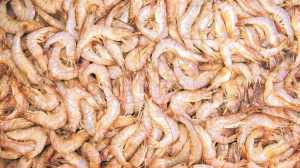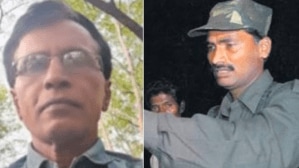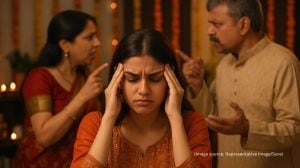At 90, Madhur Jaffery still has a few spices up her sleeve
As her classic book on Indian cuisine completes four decades, actor and author Madhur Jaffrey talks about being an accidental cook, introducing the West to Indian recipes, and the show that made her a star
 Actress and author Madhur Jaffery (Credit Lisa Levart)
Actress and author Madhur Jaffery (Credit Lisa Levart)As a young girl studying at the Royal Academy of Dramatic Art (RADA) in London in 1955, writer, cookbook author and actor Madhur Jaffrey would look forward to her mother’s letters. Away from home and yearning for the food she grew up with in Delhi, she would ask her mother to write to her with recipes. Her mother’s letters would arrive, crammed with news, and in between would be a few lines of a recipe. Indian mothers are notorious for cooking with andaaz instead of precise measurements and Jaffrey’s mother was no different.
“She always wrote in Hindi. Her letters always started the same way: ‘Pyaree (Dear) Madhur, Ram Ram’, and then she would write about someone getting married, someone’s wedding being fixed. She wrote me three-line recipes, that you take the peas, you bhuno (fry) them, then you add this and that and cook till they are done,” says Jaffrey. But what came to Jaffrey’s rescue was her memory of how the food tasted, like the heeng jeere ke aloo that was cooked in her family. “We are a Kayasth family and this was one dish we had all the time… This is the thing, I remembered the taste of the recipe. This is what I learnt much later that if you have a good palate — like my husband is a musician, he has a good ear. So whatever he hears, he remembers. And whatever I eat, I remember, because I have a good palate. Everything is going up to my brain, which is a computer and is remembering it so I can recall it and get it back. This is what I did with my mother’s three-line recipes.”
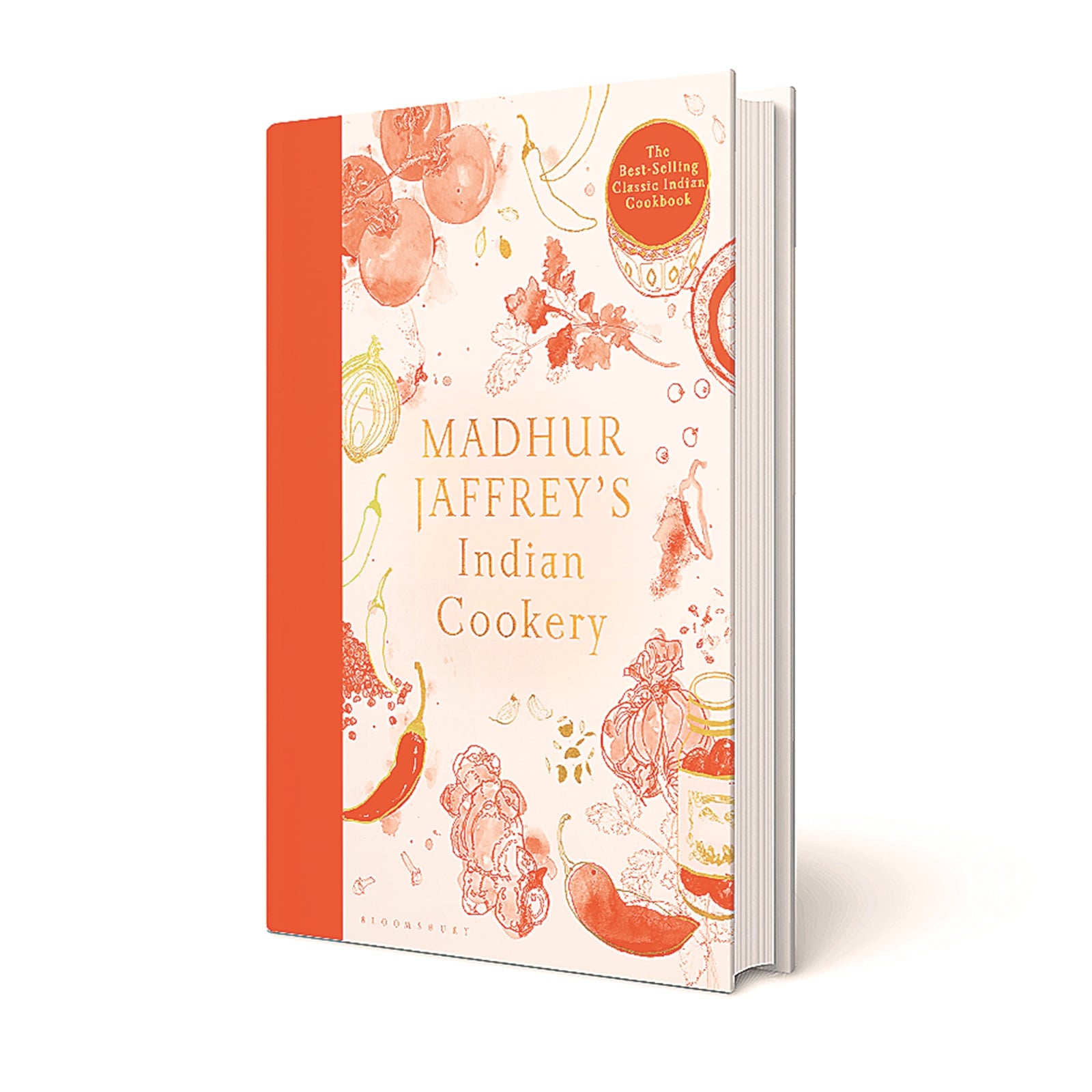 Madhur Jaffrey’s Indian Cookery (Bloomsbury)
Madhur Jaffrey’s Indian Cookery (Bloomsbury)
From learning how to cook by trial and error to becoming the face of Indian cooking in the West, Jaffrey, who turned 90 this August, has come a fair distance. On completing four decades, her classic cookbook, Madhur Jaffrey’s Indian Cookery, now has a 40th anniversary edition (Bloomsbury) with 11 new recipes, harking back to the time when she was the original spice girl whose show on Indian cooking on BBC in the ’80s made her a household name in Britain. Long before social media arrived with its shiny new stars, Jaffrey could well be called an influencer. Before YouTubers set up their food channels, bringing dishes from their kitchen to ours and aesthetic food documentation on Instagram became a thing, the West turned to Jaffrey for Indian cooking. What avocado toast and Gigi Hadid’s vodka pasta is to Instagram feeds, Jaffrey’s chicken with coriander was to the audience watching her show.
After watching Jaffrey cook on TV in the evening once a week, people would replicate the recipes the following day. The city of Manchester, it’s said, once ran out of coriander because she had cooked a dish with it on her show the previous evening. “When I was asked to do that show, there was nobody I knew who was doing a cookery show who was Indian. In fact, the whole point was that they were looking desperately for somebody to do an Indian cookery show and the idea was not so much teaching people Indian cookery but the idea was for it to be an educational kind of programme so people learnt about Indian culture, about the Indian way of life. Food was going to be used only as a means to convey a cultural programme. I was hired mainly because I was an actress who could do this thing with a certain amount of ease and I could cook a little,” says Jaffrey.
Indians living in England were ecstatic that somebody like them was on television while the British found someone from whom they could learn how to cook Indian food. “At that point, they were ready to make Indian food themselves. They had had it outside, some of them had travelled to India, and now they wanted to cook it, but they wanted to cook the real thing. Where would they get it? So here I was on television once a week cooking and everybody would go and cook the same thing the next day, it was quite exciting,” she says.
So, she taught them how to make rogan josh and chicken with coriander, qeema with mint, sweet and sour bhindi, cocktail koftas and a host of dals. The recipes came from Kashmir to Kerala, Uttar Pradesh to Gujarat, in times when Britain was yet to be acquainted with India’s regional cuisine.
nnn
But cooking was not something that Jaffrey had thought she would take up professionally. She is, what she likes to call herself, an accidental cook. After studying English at Miranda College in Delhi in the early ’50s, she acted in plays and worked with All India Radio. Acting was something she always enjoyed since her childhood and she decided to apply to RADA. Her family let her have her way. “My father had six children. The first two were boys and you know, all families want boys and they seemed perfect. Then they had two beautiful girls. Then I came along, a kind of spare odd person and my father just let me do what I wanted. I’m sure he was more careful with the others but he just let me be. It was wonderful for me, because I was allowed to develop into whatever I was,” she says. Jaffrey, whose grandfather was a successful barrister, grew up in a joint family in a sprawling house in Delhi where food was a hook around which the days were arranged. “But my father never took my acting seriously though. I remember there was a big gathering and I had just won the best actress award in Berlin for Shakespeare Wallah (1965). He was talking to India’s Vice President and he was telling him, ‘Acting is just her hobby’,” laughs Jaffrey.
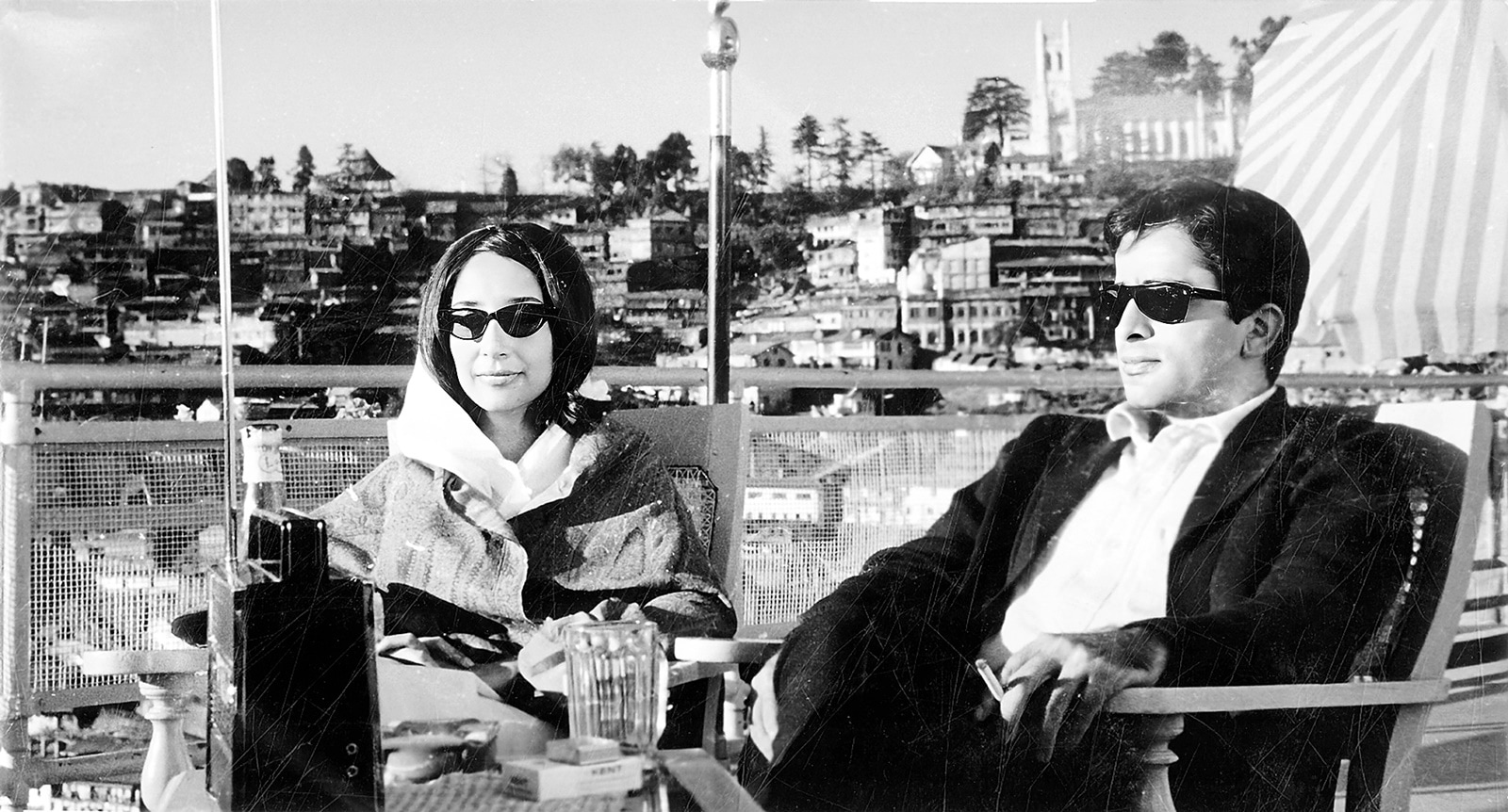 Jaffery with Shashi Kapoor in Shakespeare Wallah (1965) (Express Archives)
Jaffery with Shashi Kapoor in Shakespeare Wallah (1965) (Express Archives)
After graduating from RADA, where she studied on scholarship, she worked in a few plays and TV dramas in England before moving to America and marrying actor Saeed Jaffrey. The search for acting jobs in the US was tough. “It was impossible because I had by now acquired a British accent and nobody would hire me. And there were no roles for Indians,” says Jaffery, who then started writing for newspapers and magazines.
But those were heady days, too. Jaffrey, Saeed, filmmaker James Ivory and producer Ismail Merchant, who was studying business administration in New York then, would hang out together. Jaffrey or Merchant would cook and they would all go riding together on their bicycles to Central Park. “We were young and all just full of hope that great things would happen, and they did for all of us in some ways,’’ recounts Jaffrey.
Merchant and Ivory went on to set up their production. The Householder (1963), starring Shashi Kapoor and Leela Naidu, their first feature, was based on a novel by Ruth Prawer Jhabvala, with whom they went on to collaborate on a number of films, including Shakespeare Wallah, Heat and Dust (1983) and A Room with a View (1985).
Jaffrey’s marriage had unravelled by then and it was around this time that Ivory offered her the role of a film actress in Shakespeare Wallah. Written by Jhabvala, the film was based on Geoffrey Kendall and his travelling Shakespeareana Company that performed Shakespeare plays in towns across India post-Independence. Jhabvala, who knew Jaffrey, wasn’t convinced she looked the part but Ivory persisted and so she arrived in India. From Delhi, she took the winding road up to Kasauli in Himachal Pradesh where the film was being shot. “So I’ve just come from America, I get straight into this car going up Kasauli on these hairpin bends and I’m throwing up all of the way. I sort of looked like a dead duck, tired and skinny, when I reached. The crew looks at me like, she’s going to play a movie star?” she says. But Jaffrey proved the naysayers wrong. “I’m an actress so actresses change themselves and become something else. I was not used to acting without an audience, I was used to the theatre but I used the crew as my audience. I acted for them and they were mesmerised,” she says.
Jaffrey, who won the Silver Bear for Best Actress at the 15th Berlin International Film Festival in 1965 for her performance, went on to do a couple of films. But it was Shakespeare Wallah incidentally that led her to her other profession as a cookbook author and television host. “When the film came out, Ismail Merchant, who was the producer and who was a real salesman, told Craig Claiborne, who was the chief food writer at The New York Times, she’s a wonderful cook. I don’t know what he said to him, but he called me and said he would love to eat my food and so I made something for him,” she says. Claiborne’s story, ‘Indian Actress is a Star in the Kitchen, Too’ (1966), helped her start in the food world. Her first cookbook, An Invitation to Indian Cooking, was published in 1983. She went on to write a host of books — Seasons of Splendour: Tales, Myths, and Legends of India (1985), a book on vegetarian cooking and her memoir, Climbing the Mango Trees (2005), winning many awards along the way.
Bringing up her three children while writing and acting was tough but Jaffrey powered through. “Then I married my present husband, Sanford Allen, who’s a musician. We became a family and we tried to do as much as we could do. I wanted to send the kids to the best schools. It was hard, but we did it,” she says. The youngest of her daughters is an actress and “is getting the roles that I would never have been offered… The best part is that Indians are writing now, too. Indians writing for Indians never used to happen and that is nice to see,” says Jaffrey.
Being Asian at the time Jaffrey was acting and writing came with its limitations. “You could write about anything Asian even though initially I didn’t know much about Thai food. I knew nothing about Filipino food but they let me go and interview (Philippine’s first lady) Imelda Marcos. But Italian food, French food, no, you are not European and can’t write on it,” says Jaffrey.
Interviewing Marcos was an unforgettable experience. “In a lavishly furnished room, she was lying back on a comfortable sofa chair and there were tears dripping down her eyes. It was all so beautifully staged. She said, ‘I feel so sorry for the people. I’m sorry for the people who are suffering’. So she gives a whole spiel. I don’t think she quite understood that a gourmet writer is a food writer. So I explain that I have really come about the food and anything she cooks that she would like to show me how to make. So, she has a quick chat with her maids and she says to me, ‘Well, I do love to cook banana flambe for my husband but I’m so sorry, I can only make it with Chiquita bananas and we have no Chiquita bananas in the palace today’. So that was sort of my interview with Mrs Marcos in short,” laughs Jaffrey.
 A scene from the rap video Nani
A scene from the rap video Nani
Over the years, Jaffrey has travelled a fair bit, making frequent trips to India, exploring its various cuisines. So, does she feel there were fewer food taboos in her growing-up years? “Yes it has changed, it was freer then… I certainly felt no taboos about eating anything, I wanted to try everything. In school we would share our tiffins, we were Jain girls, Sikh girls, Muslim girls, Hindu girls,” she says.
Her travels have taken her to all parts of the country, especially the South. “Over the years, I have been to different parts of the South. I go around with a little begging bowl, learning from people. But I don’t take their recipes because people don’t know how to tell you how to cook things, they may leave something out from a written recipe. So, I say, show me how you make it,” says Jaffrey who has cut down on her cooking, “I cook very simple things now. It just takes too much energy.”
But she still finds the energy to do a little bit of everything, like her sassy turn four years ago in rapper Mr Cardamom’s expletive-rich music video, Nani, a tribute to his grandmother. “It wasn’t easy, because I was worried about getting the rhythm right. But I enjoyed it so much. There were all these wonderful young people around me cheering me on and lighting my marijuana and cigarette. I had such a good time,” says Jaffrey.






- 01
- 02
- 03
- 04
- 05








